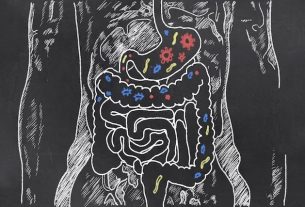Autism in adults can be identified by signs and symptoms such as difficulties in socializing, understanding what is said in an excessively literal way, reduced use of gestures or body language and little interest in relating to other people.
Autism spectrum disorder is a neurological development disorder that is usually identified in childhood. However, some milder cases may go unnoticed at this stage, being diagnosed only in adulthood. Understand better what autism is and the symptoms.
If autism is suspected in adults, it is recommended to consult a neurologist. Treatment may involve follow-up with psychotherapy sessions and the use of medication for anxiety or depression, for example, in some cases.

Main signs and symptoms
The main signs and symptoms of autism in adults are:
- Difficulty starting/maintaining a conversation and/or understanding what others think or how they feel;
- Understand what is said in an excessively literal way;
- Not knowing how to behave or speak in different situations;
- Difficulty understanding gestures and body language;
- Reduced, absent or abnormal use of gestures, facial expressions, body language or eye contact;
- Difficulty or little interest in relating to other people;
- Have rigid or inflexible routines;
- Excessive interest in specific topics or activities.
When autism is mild, in some cases, it can only be identified when the person is an adult and the symptoms are not always easily noticed. Therefore, it is common for adults with autism to be seen simply as “different” or “weird” people.
Read too: Mild autism: what it is, symptoms and online test
Furthermore, in the case of autism in adults, the person can develop strategies on their own to deal with their difficulties and avoid specific behaviors in public, which are sometimes considered “kinks”.
Even when not identified in childhood, autism in adults also causes difficulties in the affected person’s personal and/or professional life.
How to confirm the diagnosis
The diagnosis of autism in adults is normally made by a neurologist based on the signs and symptoms presented, their impact on the person’s personal and/or professional life and, sometimes, the result of the neuropsychological assessment.
If you want to make an appointment, find a neurologist closest to you using the tool below:
Taking care of your health has never been easier!
In addition, the doctor may also rely on information provided by family members and close people and/or reports from other health professionals to confirm the diagnosis of autism in adults.
Possible causes
The causes of autism in adults and children are not yet fully known, but it is believed that factors such as genetic predisposition, advanced parental age, use of valproic acid during pregnancy and low birth weight contribute to its development.
How the treatment is carried out
Treatment of autism in adults depends on the difficulties identified in each person and may involve ABA therapy, cognitive behavioral therapy, occupational therapy and/or the use of antidepressant medications in cases of depression or anxiety, for example.
However, there are also more serious cases of autism in adults who require additional care, such as the use of antipsychotic medications, speech therapy sessions and other types of rehabilitation therapies. Discover the main treatment options for autism.
Bibliography
- AUTISM SPEAKS. Applied Behavior Analysis (ABA). Available at: <https://www.autismspeaks.org/applied-behavior-analysis>. Accessed on March 12, 2024
- American Psychiatric Association. Diagnostic and Statistical Manual of Mental Disorders: DSM-5. 5.ed. American Psychiatric Association, 2013.
- STATPEARLS. Autism Spectrum Disorder. 2022. Available at: <https://www.ncbi.nlm.nih.gov/books/NBK525976/>. Accessed on January 29, 2024
- FUENTES, Joaquín et al. Autism spectrum disorder. IACAPAP e-Textbook of Child and Adolescent Mental Health. 2014
- BETTERHEALTH. Autism and adults. Disponível em: <https://www.betterhealth.vic.gov.au/health/conditionsandtreatments/autism-spectrum-disorder-and-adults>. Acesso em 29 jan 2024
- THE SPECTRUM. Autism characteristics: checklist for adults. Available at: <https://thespectrum.org.au/autism-diagnosis/checklist-adults/>. Accessed on January 29, 2024
- NHS. Signs of autism in adults. Disponível em: <https://www.nhs.uk/conditions/autism/signs/adults/>. Acesso em 29 jan 2024
- HELPGUIDE.ORG. Autism in Adults: Recognizing the Signs, Living with a Diagnosis. Disponível em: <https://www.helpguide.org/articles/autism-learning-disabilities/autism-in-adults.htm>. Acesso em 29 jan 2024

Sign up for our newsletter and stay up to date with exclusive news
that can transform your routine!
Warning: Undefined array key "title" in /home/storelat/public_html/wp-content/plugins/link-whisper-premium/templates/frontend/related-posts.php on line 12
Warning: Undefined array key "title_tag" in /home/storelat/public_html/wp-content/plugins/link-whisper-premium/templates/frontend/related-posts.php on line 13



